Polyurethane Sprayed Foam Insulation for Boats, Narrowboats, Widebeams & Barges in London
Websters Insulation Ltd has over 35 years of experience with polyurethane spray foam insulation for boats and barges across the London area.
Spray foam insulation is now the number one choice for boats, especially fot canal boats. This is mainly due to the plethora of benefits offered by the unique, lightweight foam insulation.
For projects across London, and the UK as a whole, we use the Webtherm spray foam system. It is applied to surfaces in a liquid form, and then very rapidly expands to the required thickness, setting into a rigid foam form. The benefit of this is that it fills in all gaps, creating a continuous membrane. This eliminates draughts and further possibilities of conducting cold air. Thus, in addition to boasting the most thermal efficient properties, it contains added energy saving advantages.
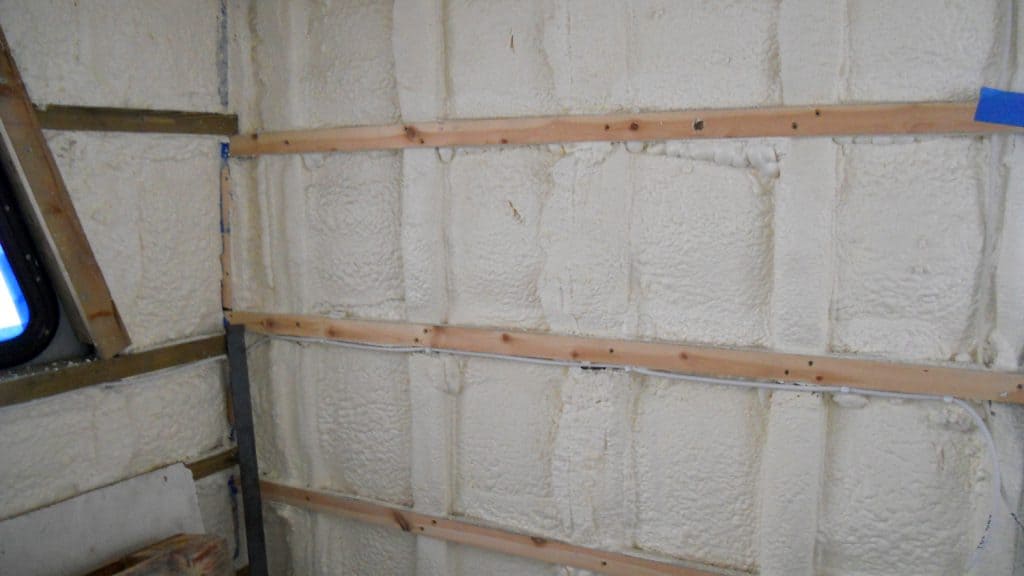
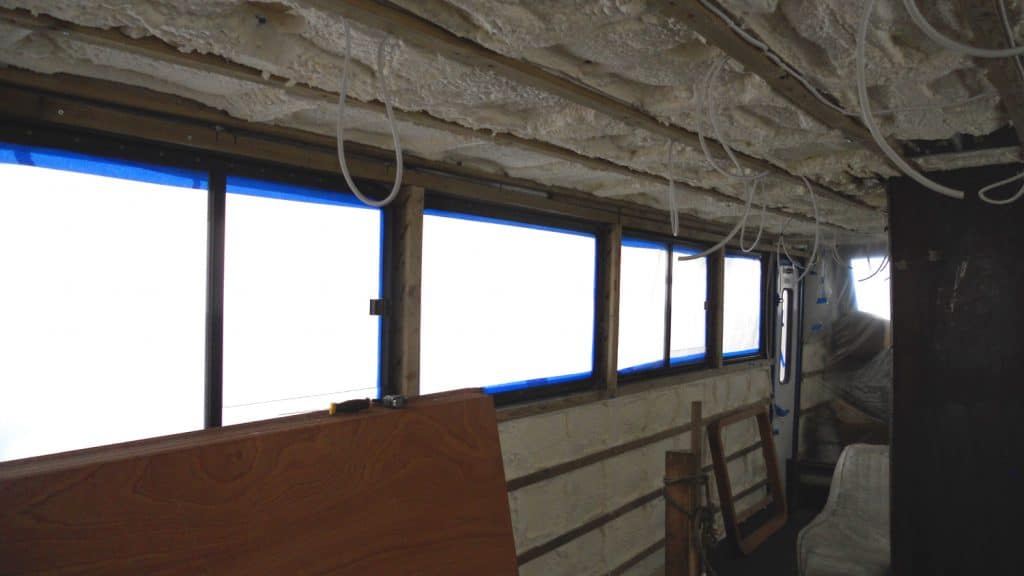
Technically speaking, insulation effectiveness is measured in terms of ‘u’ values. Spray foam boat insulation has extremely good ‘u ‘ values (thermal efficiency). For instance, when comparing spray foam to ‘Rockwool’ insulation, almost three times the thickness of ‘Rockwool’ would be needed to achieve an equivalent ‘u’ value. It is for this reason that foam is a clear choice for boat owners in London.
Additionally, we install MCA and SOLAS approved marine injection foam. This is a low density, slow rising foam called Ecofil40, designed to infill cavities on vessels such as passenger and sea fairing boats where the most stringent planning rules apply. Call us on 01405 812682 for more details and advice.
Our boat insulation photos:
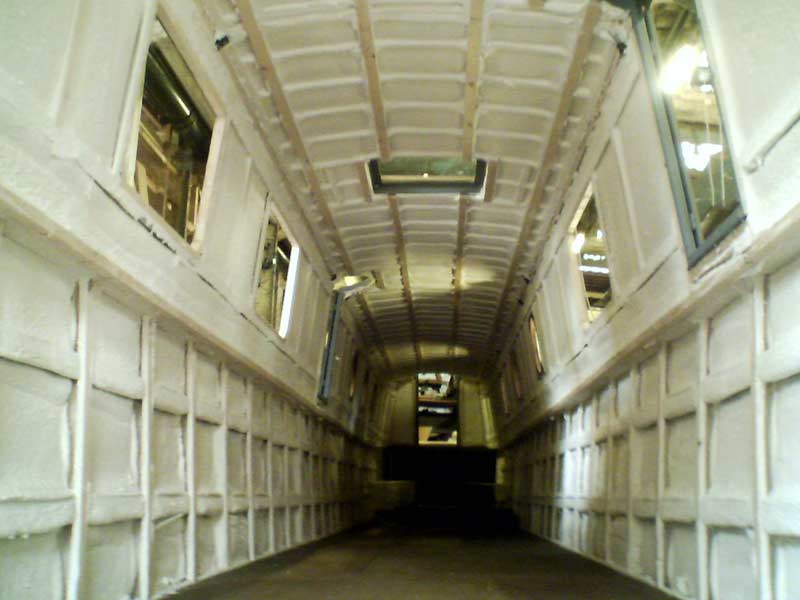
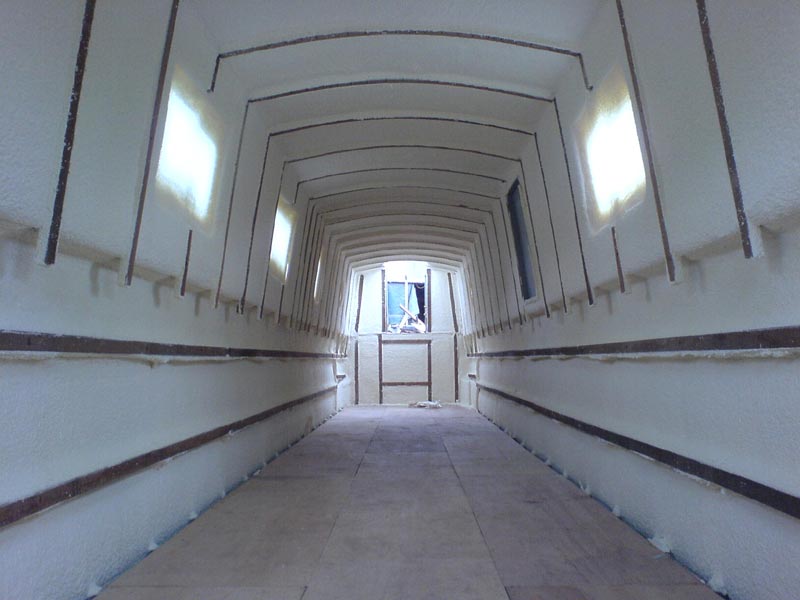
Other benefits associated with spray foam boat insulation are as follows:
- Temperature fluctuations are reduced, i.e. it helps to prevent environments being too hot or too cold
- Noise and vibrations are reduced, such as those given off by engines
- Condensation is prevented from forming on the shell of the boat
- It is very long lasting, and could in face outlive the boat!
- Spray foam works straight away
- It performs well in damp atmospheres as it has a closed cell structure, which means it is almost waterproof
- It does not produce unwanted smells associated with damp when exposed to water
- Spray foam is compatible with electric wiring, with no adverse reaction, unlike Polystyrene
With the current concerns over climate change, and frequent fuel price rises, it is no surprise that spray foam is becoming increasing popular with boat owners across London. The exhaustive list of benefits speak for themselves.
The only downside to spray foam is that it is definitely not recommended to the amateur. Typically, it is only successfully applied and gauged by skilled engineers. That’s where we come in – please feel free to contact us to discuss your boat insulation project in London.
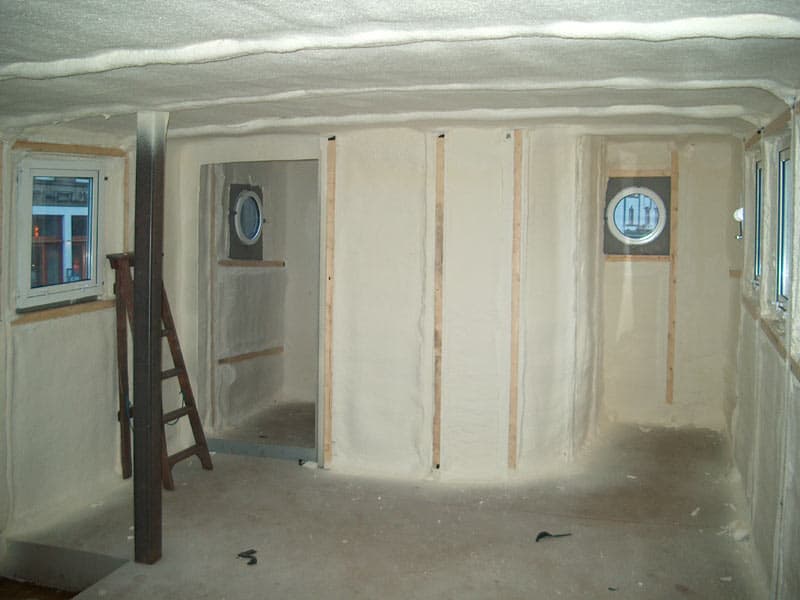
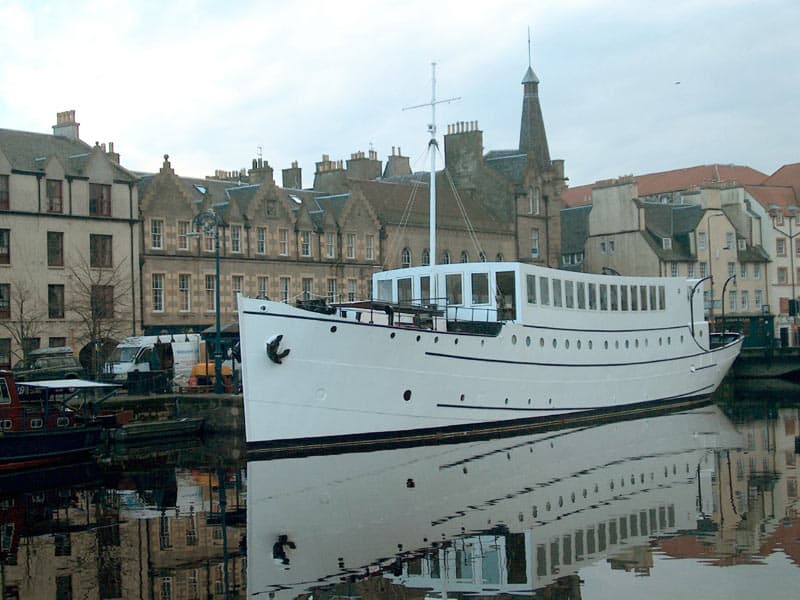
By Choosing Websters Insulation Ltd, you will will be able to utilise our wealth of experience in the industry. We pride ourselves on offering the highest quality of service and workmanship, at very competitive prices.
At Websters Insulation, we have been offering boat insulation for over 30 years and we are the UK market leader. We have undertaken countless spray foam insulation projects on all types of boats across London, and the country as a whole. The Webtherm system is the only method approved by us at Websters, because the continuous membrane adheres to almost all surfaces, and contains the most efficient insulating properties.
How thick should the insulation be?
We tend to stick around the 25mm-30mm mark on the narrow boats and wide beams that we insulate. This is becuase we understand how valuable the internal space is, particularly on a narrow boat! Typically, a 30mm thickness fits neatly between an average of 30mm battens and will provide a reasonable degree of insulation whilst also preventing the formation of condensation.
For a Dutch Barge vessel, or similar, we will often recommend anywhere from 50mm to 100mm, dependant on what the steel ribs or timber battens allow. Typically, a live aboard Dutch Barge benefits from between 85mm to 100mm of foam insulation where possible.
Is the foam fire rated?
In a word, yes. The foam carries a surface spread of flame rating of Class One, which is suitable for almost all types of commercial and domestic marine vessels. We can provide fire certificates on request.
* Websters Insulation Ltd are approved by British Waterways.
All materials adhere to a minimum of ‘BS476 part 7 class one’ fire regulations.

